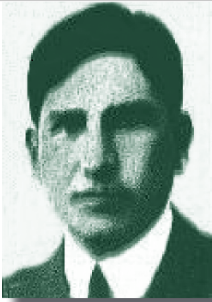Jorge Volio Jiménez

Jorge Volio Jiménez (August 26, 1882 – October 20, 1955) was a Costa Rican priest, soldier and politician.[1]
Biography
[edit]Jorge Volio was born August 26, 1882, in Cartago, Costa Rica,[1] to Carlos Volio Llorente and Matilde Jiménez Oreamuno. In 1901, he graduated with a baccalaureate in humanities with distinction (bachiller en humanidades con Distinción Unánime) from the Liceo de Costa Rica.[1] In 1903, he traveled to Belgium to study at the León XII Seminary of the University of Leuven.[2] While in Europe, he also studied at the Saint-Sulpice Seminary of Paris and at the University of Freiburg. In 1906, he graduated magna cum laude in philosophy.[citation needed] In 1909, he was ordained as a priest of the Roman Catholic Church.
After returning from Europe to Costa Rica in 1910, Volio became a parish pastor.[2] However, outraged by his country's indifference to the United States occupation of Nicaragua, he went to Nicaragua to join Augusto César Sandino's guerilla army, the liberales, and was seriously wounded in battle.[2] Returning to Costa Rica, he was given the title of "general" by the Costa Rican Congress.[2] He left the priesthood in 1915.[2]
Volio opposed the military dictatorship of Federico Tinoco Granados.[2] In 1919, he joined the Sapoá Revolution against Tinoco's regime. When the revolution failed, Volio made unsuccessful attempts to organize invasions from Panama and Nicaragua to oust the ruling junta. Tinoco was finally forced to resign on August 9, 1919, not through Volio's efforts but rather due to civilian opposition.[2]
In 1922, Volio was seated in the Legislative Assembly of Costa Rica, representing the independence party of San Ramón. In 1923, he founded the Reform Party (Partido Reformista) to fight for the working class and the poor.[2][3] He ran as the Reform Party candidate for President of Costa Rica in 1924, coming in third behind Ricardo Jiménez Oreamuno (Partido Republicano Nacional) and Alberto Echandi Montero (Partido Agrícola).[2] With none of the candidates receiving a majority of the votes, Volio threw his support behind Jiménez and was made second vice president[3] and a member of Congress.[2]
However, when the government was again unconcerned about troubles in Nicaragua, he assembled a force to cross the border and intervene.[2][4] Jiménez ordered his apprehension. He was examined by doctors and diagnosed with "nervous hypersensitivity"; his family was permitted to take him to Belgium for treatment.[2][4]
He later returned and served as director of the National Archives.[4] When the University of Costa Rica was opened in 1940, Volio was asked to join the faculty. He was named a professor of philosophy[4] and national history and Dean of the Faculty of Philosophy and Letters.[citation needed]
Volio twice served as a deputy for the Partido Republicano Nacional Independiente, in 1953[citation needed] and 1955.[4]
He died on October 20, 1955.
References
[edit]- ^ a b c Diaz-Arias, David; Viales Hurtado, Ronny; Marín Hernández, Juan José (2018). Historical Dictionary of Costa Rica. Rowman & Littlefield. p. 271. ISBN 9781538102428. Retrieved November 21, 2024.
- ^ a b c d e f g h i j k l Murphy, Paul (2003). Insight Costa Rica. Langenscheidt Publishers. pp. 49–50. ISBN 9780887291371. Retrieved November 21, 2024.
- ^ a b Rankin, Monica A. (May 3, 2012). The History of Costa Rica. Bloomsbury Publishing. ISBN 9798216097303. Retrieved November 21, 2024.
- ^ a b c d e Bisher, Jamie (March 7, 2016). The Intelligence War in Latin America. McFarland. p. 339. ISBN 9780786433506. Retrieved November 21, 2024.
